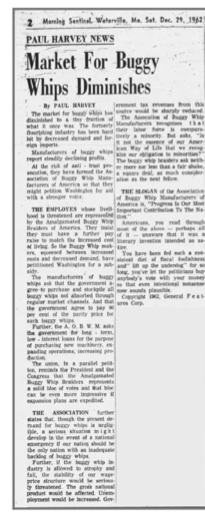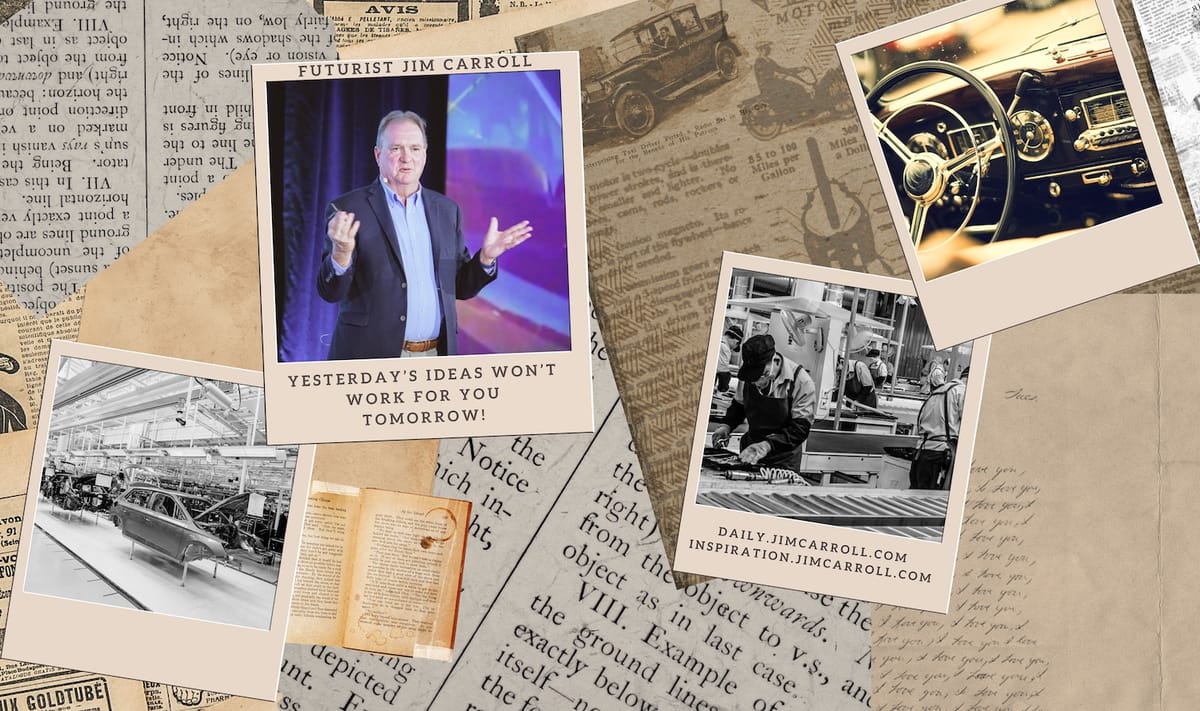"Yesterday’s ideas won’t work for you tomorrow!" - Futurist Jim Carroll
Someone asked me yesterday about my comment that Chinese automotive companies will likely own the automotive industry of the future.
Sadly, I think that it is true - the reason for that being that most auto manufacturers seem to continue to be busy fighting the battles of the last century, using product designs, ideas, and concepts involving the vehicle architecture of that era. The other automotive company that has the opportunity to own the industry in the 21st century has a CEO in place who has no focus on the battle ahead.
Case in point? How about this:
Toyota Motor Corp., the world’s largest carmaker, has since been a frequent EV skeptic, funding misleading advertisements, and lobbying against government policies that promote them around the world.
How Three High-Tech Countries Became Laggards in Electric Vehicles,
Japan, South Korea and the US have fallen behind their peers in EV adoption — despite meeting the criteria to be frontrunners.
Blooomberg, April 4, 2024
I could dig out a zillion articles like this from my research service that play into this theme, but why bother? Many folks have an ingrained belief that the dominant companies of the 20th century will be the dominant ones of the 21st. It's their right!
Rather than doing that, I went into one of my research services and dug out this article from 1962.
Read it, and think about where we are today.

Market for Buggy Whips Diminishes
Morning Sentinel, Waterville Maine, December 29, 1962
The market for buggy whips has diminished to a tiny fraction of what it once was. The formerly flourishing industry has been hard hit by decreased demand and foreign imports.
Manufacturers of buggy whips report steadily declining profits.
At the risk of anti-trust prosecution, they have formed the Association of Buggy Whip Manufactured of America so that they might petition Washington for aid with a stronger voice.
The employees whose livelihood is threatened are represented by the Amalgamated Buggy Whip Braiders of America. They insist they must have a further pay raise to match the increased cost of living. So the Buggy Whpe makers squeezed between increased costs and decreased demand, have petitioned Washington for a subsidy.
The manufacturers of buggy whips ask that the government agree to purchase and stockpile all buggy whips not absorbed through regular market channels. And that the government agrees to pay 90% of the party price for such buggy whips.
Further, the A.O.B.W.M asks the government for long-term, low-interest loans for the purposes of purchasing new machinery, expanding operations, and increasing production.
‘The union, In a parallel petition, reminds the President and the Congress that the Amalgamated| Buggy Whip Braiders represents| a solid bloc of votes and Wat bloc can be even more impressive if expansion plans are expedited.
The Association further states that, though the present demand for buggy whips is negligible, a serious situation might develop in the event of a national emergency if our nation should be the only nation with an inadequate backlog of buggy whips.
Further, if the buggy whip industry is allowed to atrophy and fail, the stability of our wage-price structure would be seriously threatened. The gross national product would be affected. Unemployment would be increased. Government tax revenue from this source would be sharply reduced.
The Association of Buggy Whp Manufacturers recognizes that their labor force is comparably a minority. But asks, "Is it not the essence of our American Way of Life that we recognize our obligation to minorities?" The buggy whip braiders ask night more nor less than a fair shake, a square deal, as much consideration as the next fellow
The slogan of the Association of Bugy Whip Manufacturers of America is, "Progress is Our Most Important Contribution to the Nation."
Americans, you read through most of the above -- perhaps all of it -- unaware that it was a literary invention intended as satire.
Obviously a bit of satire, but I come away from reading this article with three conclusions:
- I must get in and do a keynote for this association!
- the reference to minorities would certainly be somewhat politically incorrect today!
- I could probably recycle this article, and substitute in many an industry of the 20th century that is busy whining rather than reinventing
The future doesn't like old ideas. It likes new ones. Find them, and chase them.
That is all.
Futurist Jim Carroll often finds inspiration for looking forward by looking back. That is not contradictory to the idea in today's post.

